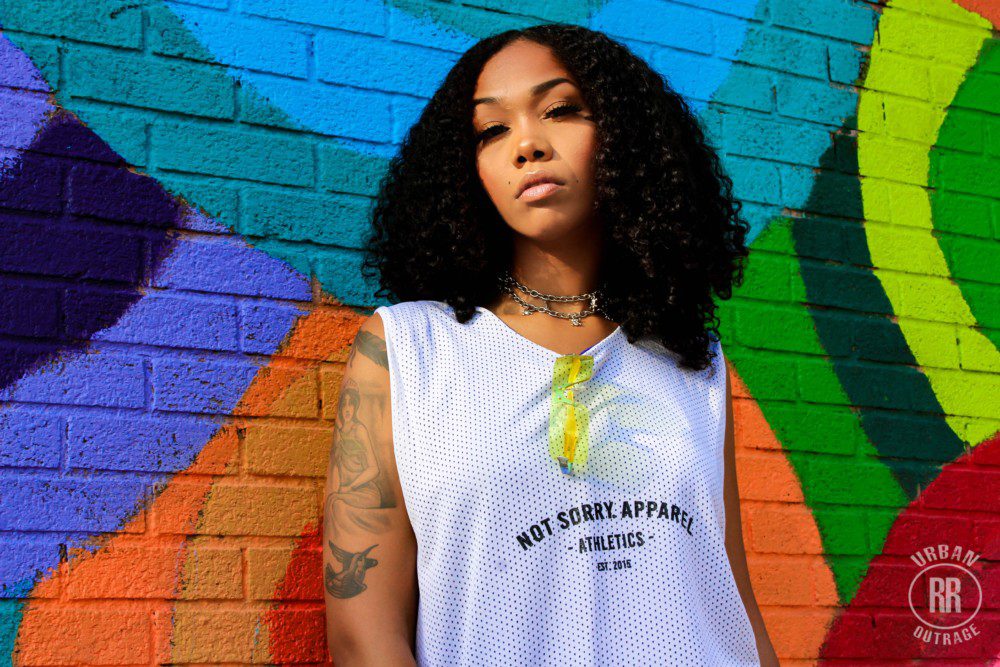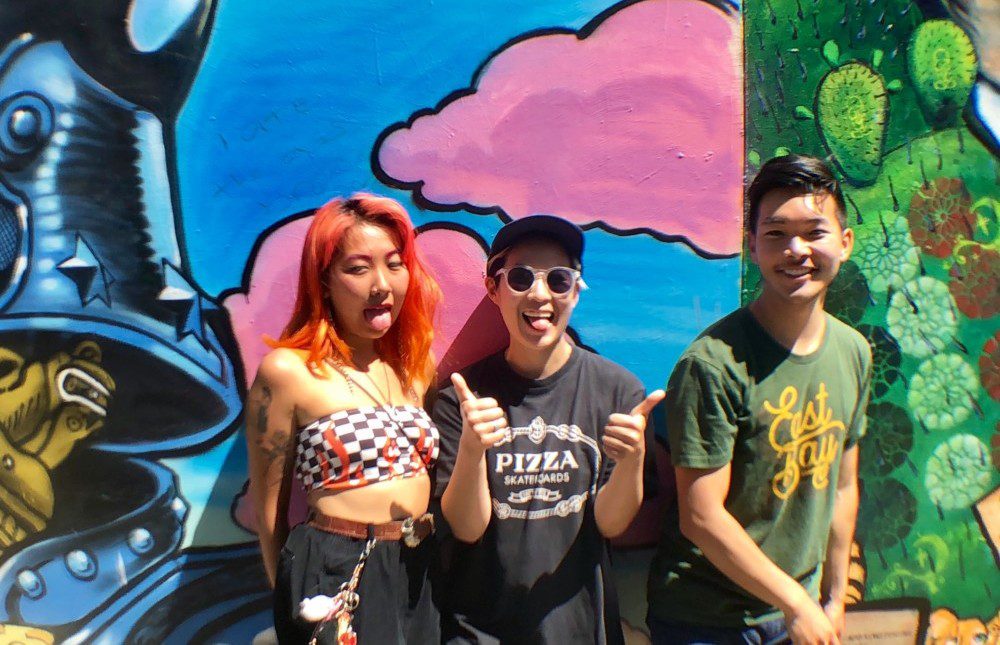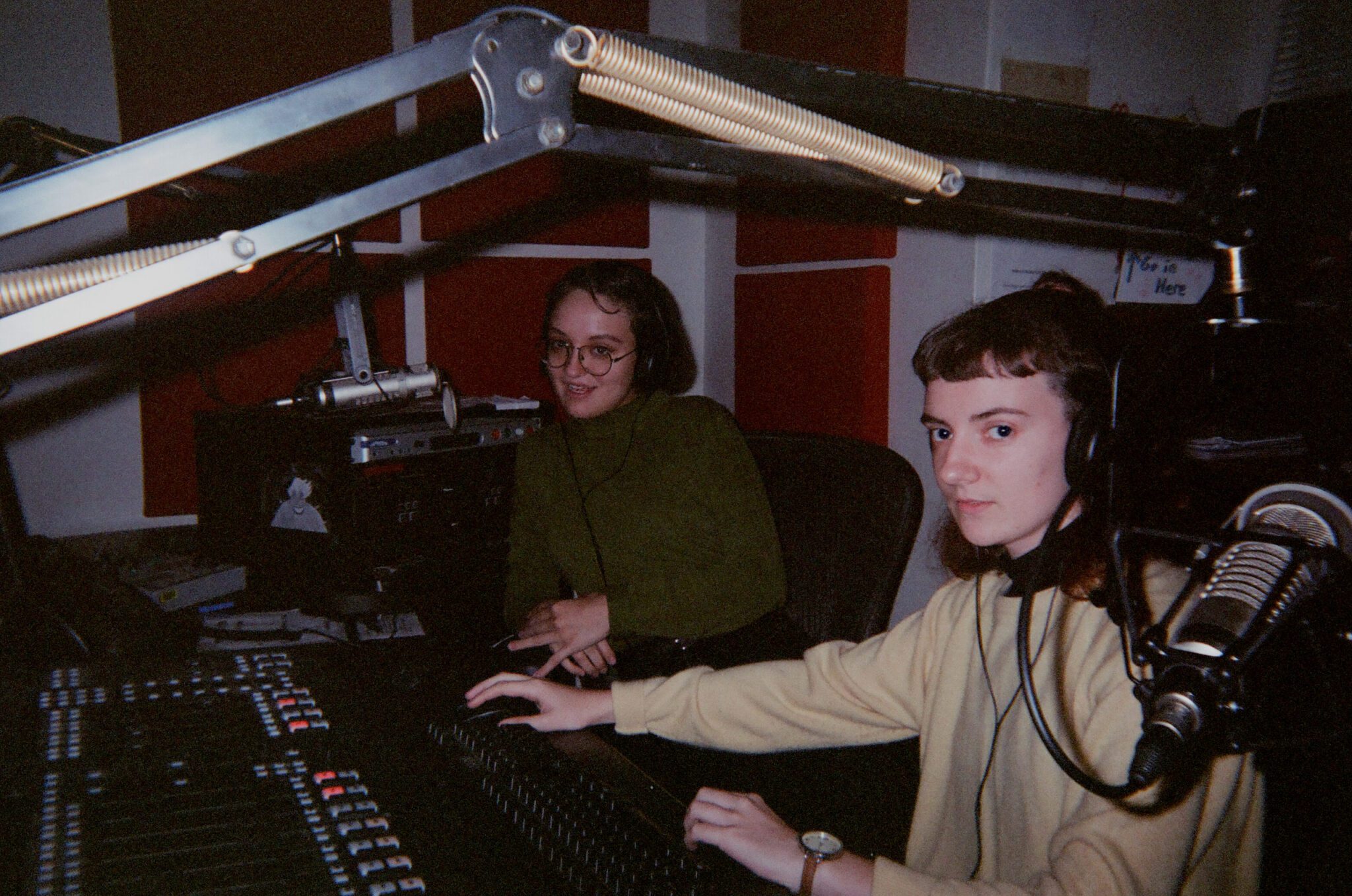PLAYING DETROIT: Tiny Jag’s ‘Polly’ is a Piece of “Glam-Trap” Gold

Detroit’s Jillian Graham, a.k.a Tiny Jag, is a force to be reckoned with. The hip-hop artist released her first full-length mixtape, Polly, this August, and it is a stunning debut that paints a portrait of a gives-less-fucks-than-thou, brazenly confident master of wordplay. Graham explains that the record is a symbol for her break out of the limiting schemas she spent a lot of her life trying to fit into. She finds freedom in existing in dualities and performing them in whatever way she feels like.
Polly is the type of record that can take you out of whatever place you’re in and transport you to another world – one where badass lady monsters rule the world and stomp over anyone who gets in their way. Graham’s brash and piercing vocals jump from the speakers and cling to the listener with every growled word. The eight-song mixtape unfurls as a series of clever puns and short and sour rants, combined to form a protest against gender normativity, haters, and fuckboys. We caught up with Tiny Jag to talk about what went into making Polly and what the record means to her.
AF: Can you talk about the cover of Polly? What does the big devil monster represent?
TJ: Absolutely! The “devil monster” is hilarious, by the way. But I spent a lot of time with my grandmother – my mother’s mother – growing up. One of the many messages that she communicated to me while I was young was to never be afraid of what looks back at me in the mirror. Whether I was staring into the reflection of my darkest moments or maybe square dead into my potential, she never wanted me to fear who I am. That was an ongoing motif throughout the creation of Polly.
AF: This is your first full-length release. What did it take to bring this project to life and who did you work with?
TJ: A lot of understanding and patience was required with this tape. I recorded it in a few different studios, around a lot of different energies, under the scope of many different eyes. I had to be patient with myself while I processed it, all while still setting that expectation within myself to rise to the occasion. I had the opportunity to work with several producers from Detroit to make Polly, which truly makes it a mixtape to me. Those producers – ABSTRACT, Benny Banter, Pri$m and YellxBxy – showed appreciation for my work and my vision and were really assets to the project. Kato On The Track is a great producer out of Atlanta who has two tracks on the project as well.
AF: Is there an overarching theme or story that goes along with the record?
TJ: As I mentioned in the story with my grandmother, I didn’t want to allow anything, not vanity, not self-consciousness, nothing, to keep me from expressing myself unapologetically on this tape. Accepting the duality and contrasts that I encompass – dark vs. fun, girl vs. boy, “woke” vs. trap, healthy vs. hood – was a big deal to me. I spent so much energy before music trying to fit in one of those lanes at a time out of fear. I wanted to announce that I was done doing that shit.
AF: How much did growing up in Detroit influence your artistry? Are there any local female hip-hop artists that inspired/influenced you?
TJ: I think the experiences I had running around Detroit through the years influenced my artistry greatly. Our city has a lot of duality as well; grit and grace, highs and lows, love and hate. I can’t say I was influenced by Detroit female hip-hop a great deal growing up, but I can say a peer of mine, Che, was one of the first to show me that you don’t have to give up being cool as fuck to talk about anything. She really drove the point the home that it’s not about what you do, it’s how you do it.
AF: There seems to be an emphasis on independence on this record – were there any events in the past few years that molded this focus?
TJ: A lot of the time, when I found myself trying to fit into those limiting molds, I was never doing it for me. I was not checking in with myself. I was not owning my existence or moving in a way that was true to me. I had to get selfish and think on my own. I wanted to celebrate thinking independently and that selfishness. It’s something we oftentimes frown upon.
AF: It sounds like a lot of influences come together to make your sound – who are some unlikely artists that you channel in your work?
TJ: I think that’s fair as well. I’m sure I have a few less than typical influences. I think Limp Bizkit and No Doubt are both bands that captivated me as a youngster and introduced me to that kind of hip hop, urban rock that I definitely still feel connected to when creating.
AF: I kind of think of your music as “glam-trap” – do you think that’s a fair description?
TJ: GLAM TRAP. I love it. I would say it’s fair too. A lot of my songs, if not all, offer a relevant, trap element; whether it be the percussion in the beat or the melodies used. They all also bring a raw, creepy harshness to the table but it’s often wrapped in a glamorous, boss bitch bow.




